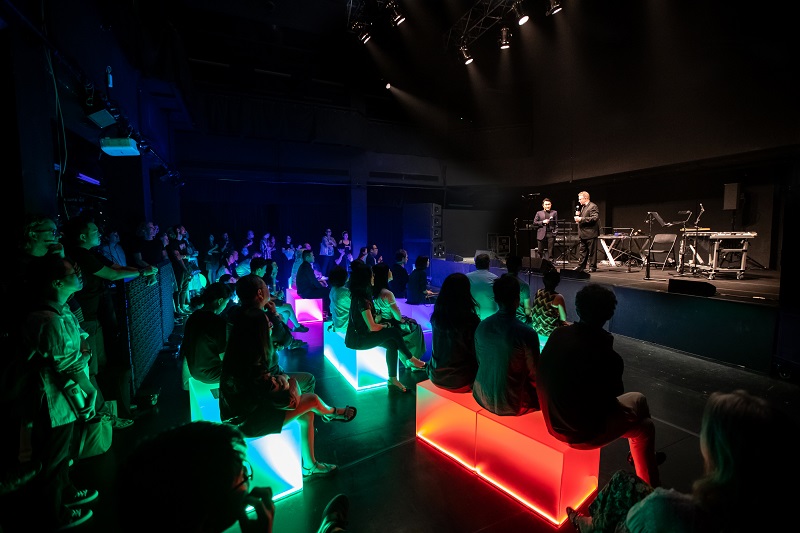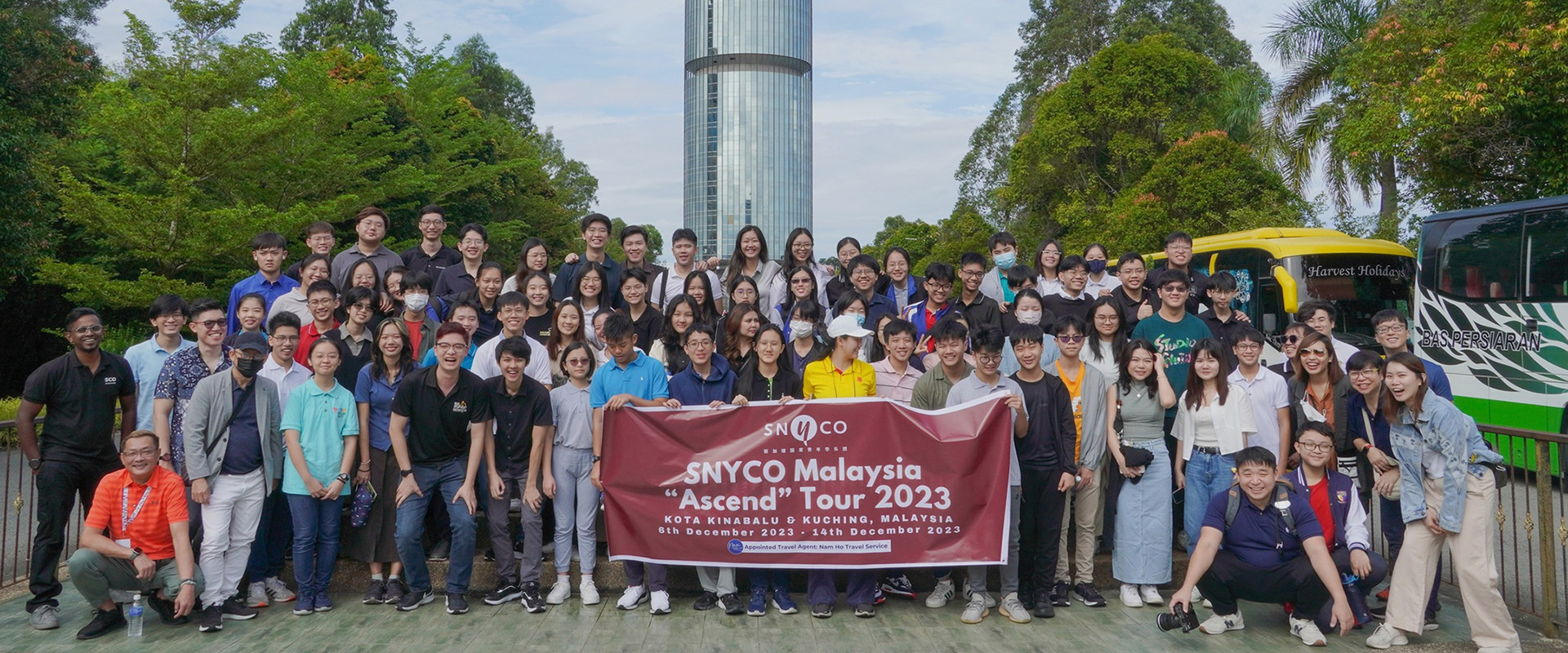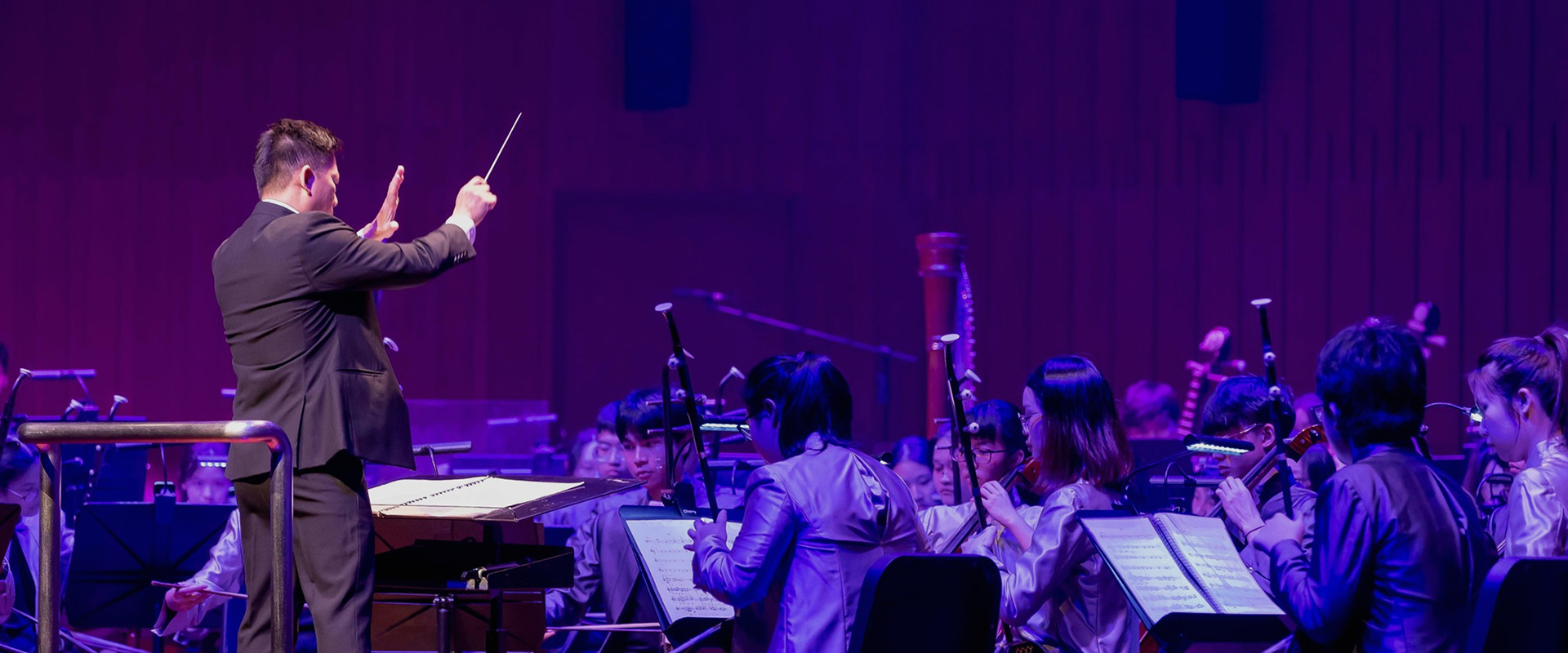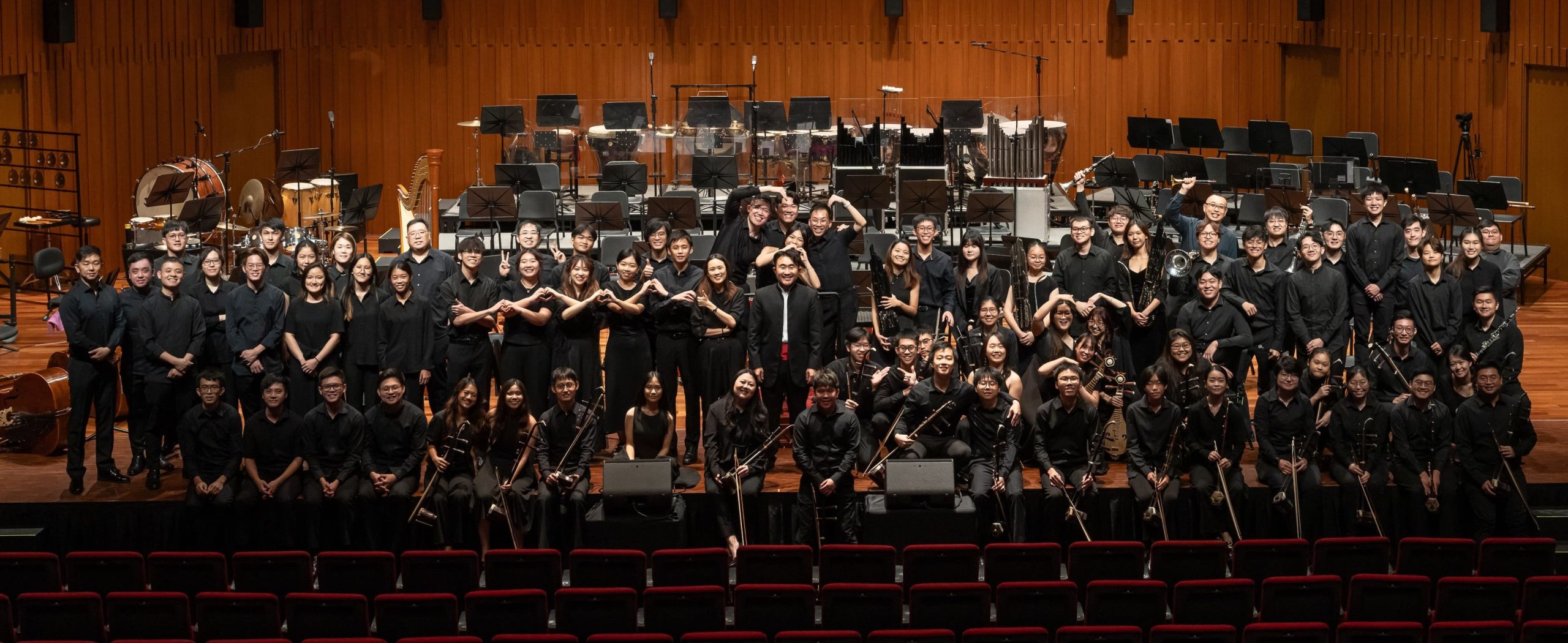Accomplished orchestral and opera conductor Mr. Lien Boon Hua joins SNYCO as Guest Conductor. Since Boon Hua’s last collaboration with SNYCO in 2022, he has been anticipating the opportunity to work with the incredibly talented young musicians in SNYCO again. No stranger to mentoring youth, Boon Hua is a passionate music educator on the conducting faculty at Yong Siew Toh Conservatory of Music (YST). He also leads the Conservatory’s music ensemble OpusNovus. Ahead of the next SNYCO season, huayue caught up with Boon Hua to talk about what the youths are to expect from their new mentor.
Both Wayfarer Sinfonietta and OpusNovus specialise in performing contemporary music, especially newer works by internationally renowned composers and lesser known gems of the contemporary repertoire. Chinese orchestral works are also from the same modern-contemporary era, so what attracts you to these works versus pieces from older periods? How about the pressure between doing new works versus classic repertoire?
I’m drawn to contemporary music because it represents the living, breathing heart of musical innovation. It’s like exploring uncharted territories and discovering new landscapes of sound that could challenge or complement our musical taste. While the classical repertoire has a timeless beauty that resonates deeply within us, I also believe that music is a living, evolving art form that reflects our ever-changing world. The pressure between performing new and classic repertoire is a delicate balancing act; it’s about preserving the heritage while pushing the boundaries of artistic expression.
Recently you toured Adelaide with the Yong Siew Toh Conservatory students, how is it like to travel and perform with young musicians?
Traveling and performing with young musicians is an absolute delight. Their enthusiasm is truly infectious, and their fresh perspective keeps me inspired. It brings me back to a time when I was their age and experiencing the excitement of going on a tour again. Witnessing their growth is a unique privilege and it’s a reminder of the importance of music education and the potential within the next generation of musicians.

Photo by Yong Siew Toh Conservatory
What are the most interesting differences between conducting a symphonic orchestra and a Chinese orchestra?
The differences between conducting a symphony orchestra and a Chinese orchestra are fascinating. One particular difference lies in the orchestral sound. Symphony orchestras these days often strive for a harmonized, uniform sound, while Chinese orchestras proudly maintain their regional identities, resulting in a rich tapestry of distinctive instruments and timbres. Balancing and harmonizing these diverse elements is a thrilling and deeply rewarding endeavour for any conductor.
My journey into the world of Chinese music a few years ago has been a fascinating voyage of self-discovery and a connection with my cultural roots. Along this path, I’ve been fortunate to receive a warm and generous welcome from many friends and colleagues within the Chinese music community. Their support has been invaluable, and I’m deeply appreciative of their kindness. Especially so in an industry often characterized by fierce competition, the conductors of SCO, including Maestros Yeh Tsung, Quek Ling Kiong, and Moses Gay, are not only remarkable in their craft, but they are also exceptional in their generosity. Rather than guarding their expertise, they embraced me with open arms and shared their profound knowledge and experience with Chinese music. Their kindness imparted a valuable lesson to me about the importance of uplifting others and passing on wisdom to nurture our music community.
As a trombonist, which wind instrument in the Chinese orchestra intrigues you or would you be keen to pick up?
Among the wind instruments in the Chinese orchestra, I find the sheng particularly intriguing. Its ancient history and hauntingly beautiful sound captivate me. Learning to play the sheng would be a fascinating journey into the heart of Chinese music.
What is your advice to SNYCO members considering a full-fledged career in music?
Pursuing a career in music is both rewarding and challenging. My advice is to cultivate versatility, embrace lifelong learning and remain open to diverse musical experiences. Music has a special way of connecting people deeply. The bonds that you create with fellow musicians during rehearsals, concerts and shared moments stay with you for a lifetime. These friendships not only enrich your personal and professional life but also provide inspiration and support during your highs and lows, and make navigating life’s unpredictable journey a lot more fun.
Which exciting productions do you look forward to in 2024? What inspires you to work with young orchestral musicians?
I’m eagerly anticipating several exciting productions in 2024, including the SCO Young Children Concert, SNYCO concerts, guest conducting overseas as well as projects with Wayfarer Sinfonietta and OpusNovus. Working with younger musicians is invigorating because their youthful energy adds a special electricity to our performances, and that’s precisely what concerts are to me: an opportunity to create magical and unforgettable moments together on stage, shared with our audience.
How do you envision the orchestra scene 50 years from now? Considering that you mostly mentor a generation of digital natives who readily embrace artificial intelligence, do you think conductors will be obsolete because of AI?
The orchestra scene in 50 years will likely be vastly different due to technological advancements. While AI can assist in various aspects of music creation and performance, I don’t believe conductors will become obsolete. Music is a deeply human experience, and a conductor’s role goes beyond mere technical direction; it involves interpretation, emotion, and connection with the orchestra and audience. AI can enhance our capabilities, but the essence of music will always require human touch.
You’ve performed all over the world; which is your most memorable experience?
Performing around the world has given me many unforgettable experiences but one of the most memorable in recent years has to be the Esplanade’s 20th anniversary concert with the Singapore Symphony Orchestra. This event was particularly touching for me as it symbolized the remarkable progress of Singapore’s music scene over the past two decades. The concert featured talented Singaporean soloists, composers, and myself, performing to a packed hall. The centrepiece of the evening was a newly commissioned composition that showcased the composers as soloists in individual movements, involving three choruses and the magnificent Klais organ. It was not just a sonic extravaganza but, more importantly, a moment that filled me with immense pride as a Singaporean artist.



